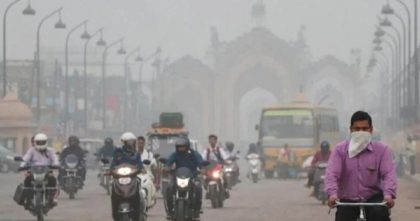“My dad’s feet were always swollen at night, but he said it was just from sitting too long. A few months later, we found out his heart was failing.”
Stories like this are all too common in South Asian families. We often brush off small changes in our bodies as “just getting older” or “working too hard.” But sometimes, these everyday symptoms are trying to tell us something important about our hearts.
Heart failure doesn’t always announce itself with chest pain or a dramatic collapse. Instead, it often begins with subtle signs that are easy to miss or dismiss.
Let’s walk through 5 everyday symptoms that deserve attention — especially if you or your parents are South Asian.
The Top 5 Everyday Symptoms of Heart Failure
1. Shortness of Breath (Even When Lying Down)
- You feel winded while walking or climbing stairs
- You might need to stop and catch your breath during activities that never bothered you before
- Lying flat at night makes breathing difficult
- Many people start sleeping with 2–3 pillows just to breathe comfortably
What’s happening: According to the Mayo Clinic, this occurs because fluid builds up in your lungs when the heart can’t pump well enough. When you lie down, this fluid shifts and makes breathing harder.
Real-life example: Priya’s mother started sleeping in a recliner because lying in bed made her feel like she was “drowning.” This was actually fluid backing up into her lungs due to heart failure.
2. Swelling in Ankles, Feet, or Legs
- Your ankles look puffy, especially at the end of the day
- Shoes feel tighter by evening
- You might notice sock marks or indentations in your skin
- The swelling improves overnight but returns the next day
What’s happening: The Cleveland Clinic explains that when your heart isn’t pumping efficiently, blood backs up in your veins. Gravity pulls this extra fluid into your legs and feet when your heart can’t circulate blood properly.
Real-life example: Raj noticed his father’s slippers no longer fit in the evenings. Instead of buying new shoes, they should have asked why his feet were swelling.
3. Sudden Weight Gain
- Your weight jumps 3–5 pounds in a few days — but you haven’t changed your diet
- Clothes feel tighter, especially around the waist
- This weight gain happens quickly, unlike typical fat gain
What’s happening: This rapid weight increase is often fluid retention, not fat — an early red flag of heart failure. The American Heart Association recommends weighing yourself daily if you’re at risk, as sudden weight gain can be one of the earliest detectable signs.
Real-life example: Anjali gained 7 pounds in a week despite eating normally. Her doctor discovered this was fluid buildup from early heart failure.
4. Racing or Fluttering Heart (Palpitations)
- You notice your heart “pounding” even while resting
- Sometimes it skips beats or feels irregular
- You might feel dizzy or lightheaded with these sensations
- The fluttering might come and go
What’s happening: The heart may beat faster to “compensate” when it’s too weak — or develop an irregular rhythm like atrial fibrillation (AFib), which is more common in heart failure patients.
Real-life example: Mr. Kumar thought his “jumping heartbeat” was from too much tea, but it was his weakened heart trying to pump harder to maintain blood flow.
5. Tiredness All the Time
- Even light activity feels exhausting
- You feel drained, but can’t explain why
- You need more rest breaks during daily activities
- The fatigue doesn’t improve with normal sleep
What’s happening: Your heart isn’t pumping enough oxygen-rich blood to your muscles and organs, making everything feel more difficult.
According to Dr. Hafiz, a cardiologist in London, these five symptoms — breathlessness, swelling, weight gain, palpitations, and tiredness — are the most common first signs of heart failure in patients he sees at the hospital or emergency department.
“By the time most South Asian patients come to me,” says Dr. Hafiz, “they’ve often been experiencing these symptoms for months, thinking they were normal signs of aging. Early attention to these signs could have meant simpler treatment.”
Why South Asians Should Pay Extra Attention
Several factors make South Asians particularly vulnerable to heart failure:
- Earlier onset: South Asians often develop heart disease 10 years earlier than other groups
- Body composition: We carry more belly fat and have less muscle mass, even if we appear slim
- Medical conditions: Diabetes and high blood pressure rates are higher in our community
- Cultural factors: Many of us delay seeking medical help until symptoms are severe
- Misattribution: We often blame symptoms on “just aging,” “stress,” or “working too hard”
The American Heart Association confirms that South Asians in the US have a four-fold higher risk of heart disease compared with the general population. This makes symptom awareness even more crucial for our community.
What to Do if You Notice These Symptoms
If you or a loved one experiences any of these signs, here’s an action plan:
- Don’t brush it off — even mild symptoms deserve attention if they’re persistent or getting worse
- Talk to your doctor – explain all symptoms, even if they seem small or unrelated
- Be specific about when they started and what makes them better or worse
- Mention if they improve with rest or worsen with activity
- Ask for these simple tests:
- BNP/proBNP blood test (shows if your heart is under stress)
- Echocardiogram (ultrasound that shows how well your heart pumps)
- Chest X-ray (can show fluid in lungs or enlarged heart)
- Blood pressure and weight tracking
- Bring a family member to appointments if needed — they can help describe symptoms you might minimize
- Follow up if symptoms don’t improve or get worse, even if initial tests are normal
Help Your Family Too
Many South Asian elders won’t mention these symptoms unless directly asked. Here’s how you can help:
- Notice if older relatives get more breathless during walks or activities
- Pay attention if they mention needing more pillows to sleep
- Watch for swollen ankles or tighter shoes at day’s end
- Ask if they feel unusually tired or if their heart ever “flutters”
Try this conversation starter: “I read that swelling and tiredness might be signs of heart failure — can we check with your doctor just to be safe?”
Consider sharing this symptom list in your family WhatsApp groups. It could be the nudge someone needs to seek help before a crisis occurs.
Final Message
Heart failure doesn’t always come with chest pain or collapse. It whispers before it shouts.
These symptoms — swollen feet, breathlessness, tiredness — may be your heart asking for help.
Listen early. Act early. Live stronger.
The Mayo Clinic emphasizes that heart failure, when caught early, can often be managed effectively with medication and lifestyle changes. But the longer these symptoms are ignored, the more challenging treatment becomes.
Remember: Being concerned about these symptoms isn’t being dramatic or weak — it’s being smart about your health. Your family needs you healthy for many years to come.
This article includes insights from Dr. Hafiz (London-based cardiologist) and information from the Mayo Clinic, Cleveland Clinic, and American Heart Association.




